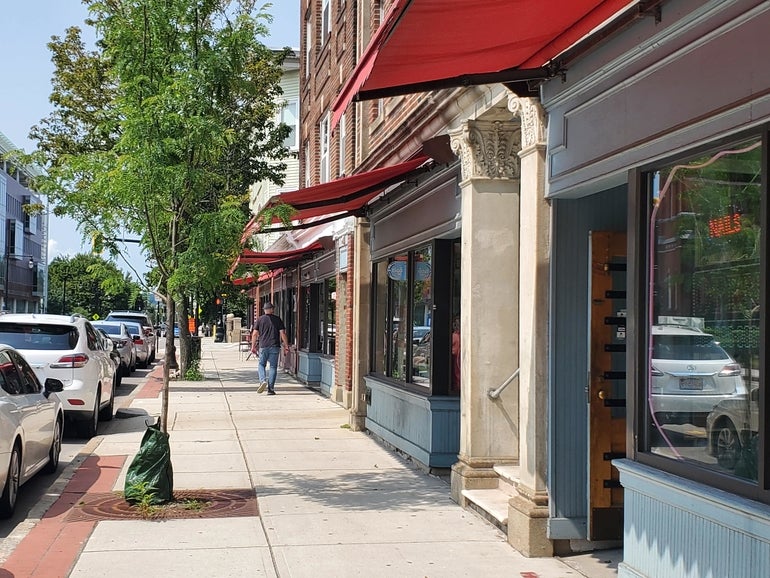It’s become a regular fixture on the calendar, but the dates of the 2024 sales tax holiday weekend remain up in the air and this is the week for lawmakers to put something on the books – if they’re going to.
The Legislature could also opt not to act, and instead allow Revenue Commissioner Geoffrey Snyder decide which August weekend the state will suspend collection of the 6.25 percent sales tax on most items that retail for less than $2,500. The holiday does not apply to purchases of some specific goods or services: motor vehicles, motorboats, meals, alcoholic beverages, tobacco products, marijuana products, telecommunications services like prepaid calls, natural gas, steam, or electricity.
Lawmakers have until June 15 to agree to a date, and if they fail to do so, the revenue commissioner has until July 1 to do so. Both branches will be in session at least twice this week, giving lawmakers ample opportunity to adopt the resolution required to establish the dates. The first chance comes Monday at 11 a.m., when each branch holds an informal session.
Last year, the sales tax-free weekend was held Saturday, Aug. 12 and Sunday, Aug. 13. The Department of Revenue estimated that last year’s sales tax holiday weekend resulted in approximately $36.94 million in forgone sales tax revenue for the state — $24.23 million of which would have gone into the General Fund, $6.75 million into the MBTA State and Local Contribution Fund, $5.90 million into the School Modernization and Reconstruction Trust Fund, and about $57,000 into the Convention Center Fund.
The agency also said, “with less certainty,” that the indirect tax revenues generated due to increased economic activity during the sales tax holiday weekend totaled approximately $3.54 million.
The 2018 “Grand Bargain” law that raised the minimum wage, created a state paid family and medical leave program, and phased out time-and-a-half pay on Sundays and holidays also made a sales tax-free weekend an annual holiday and laid out the timetable for it to be scheduled. The law requires the Legislature to “take into consideration all religious or secular days of observation occurring during the month of August; provided, however, that the commissioner shall designate such days so as to maximize the economic benefit to the commonwealth.”
As part of that law, retailers backed away from plans to put on the statewide ballot a proposal to roll the sales tax rate back to 5 percent, the rate it stood at for years before the Legislature in 2009 raised it as part of a budget-balancing package.
The sales tax-free weekend has been debated on Beacon Hill in various contexts over the years, with it sometimes taking heat from critics as a gimmick. And while eliminating the sales tax provides some immediate relief for consumers, the maximum savings available on any one item covered by the tax break is $156.25.
The tax suspension has taken on a different significance in recent years as residents contend with persistent inflation that gnaws away at purchasing power. With the state sitting on a glut of tax revenue in 2021, Gov. Charlie Baker proposed a two-month sales tax holiday in August and September, saying it would help give the state’s economy “some momentum as we come out of this sort of pandemic doldrums that we’ve been in.” Legislative Democrats slammed the idea and instead stuck with the prescribed two-day version.
When the Mass. Senate debated its fiscal 2025 budget late last month, Minority Leader Bruce Tarr pushed for two amendments amid a presentation he gave on the trend of outmigration from Massachusetts to lower-tax states like New Hampshire and Florida. Tarr proposed giving diners a weekend break from the state’s 6.25 percent meals tax the same way shoppers get brief relief from the sales tax, and then also extending the sales tax holiday to a two-week period.
“Inflation is still an incredibly high burden for people all across the country, but to a disproportionate level in Massachusetts. And so what that translates to, as we think about the costs for families that are working hard, trying to make ends meet, trying to continue to call Massachusetts home, particularly as we go into the time of year when they’re thinking about needing new school clothes, or new school supplies, or a whole host of things, even a basic appliance. When it comes to that time of year, we should be giving them more of a break,” Tarr argued.
Senate Ways and Means Chairman Michael Rodrigues, who runs ABC Floor Covering in Westport, led the (successful) opposition to Tarr’s amendment and made the case that the sales tax holiday does not so much spur new spending as it does change when that spending happens.
“I’ve spent my entire life in the retail business. And I can tell you that the sales tax holiday does not and has never incentivized new spending, as we said it would. All it does is shift spending,” Rodrigues said. “It’s amazing how I could have a 10 percent off sale in my business. But if you say ‘we’re gonna save the 6.75 percent [sic] of the sales tax,’ it’s attractive. It will cause people to really shift their spending habits, but it does not create new additional sales.”
Even before it was a statutorily-required weekend of relief for shoppers, Massachusetts had long offered the tax holiday during a summer weekend as a way to boost local businesses, though it did not have one in place in 2016 or 2017. In 2018, the dates weren’t officially set until one day ahead of time.
The first was a single-day holiday, held Saturday, August 14, 2004 and authorized by an economic stimulus package signed the previous November by Gov. Mitt Romney. The first sales tax holiday was estimated to have saved consumers about $10.1 million, the News Service reported, and the House chair of the Revenue Committee, Rep. John Binienda, said retailers that day “did Christmas Eve numbers in August.”

